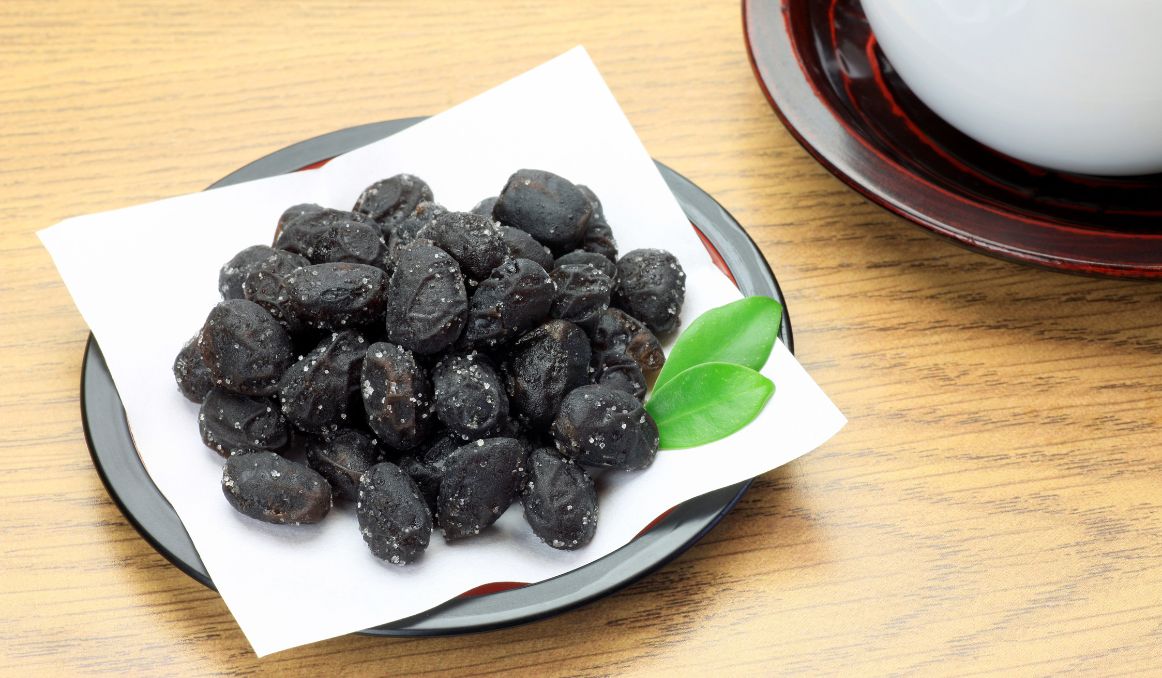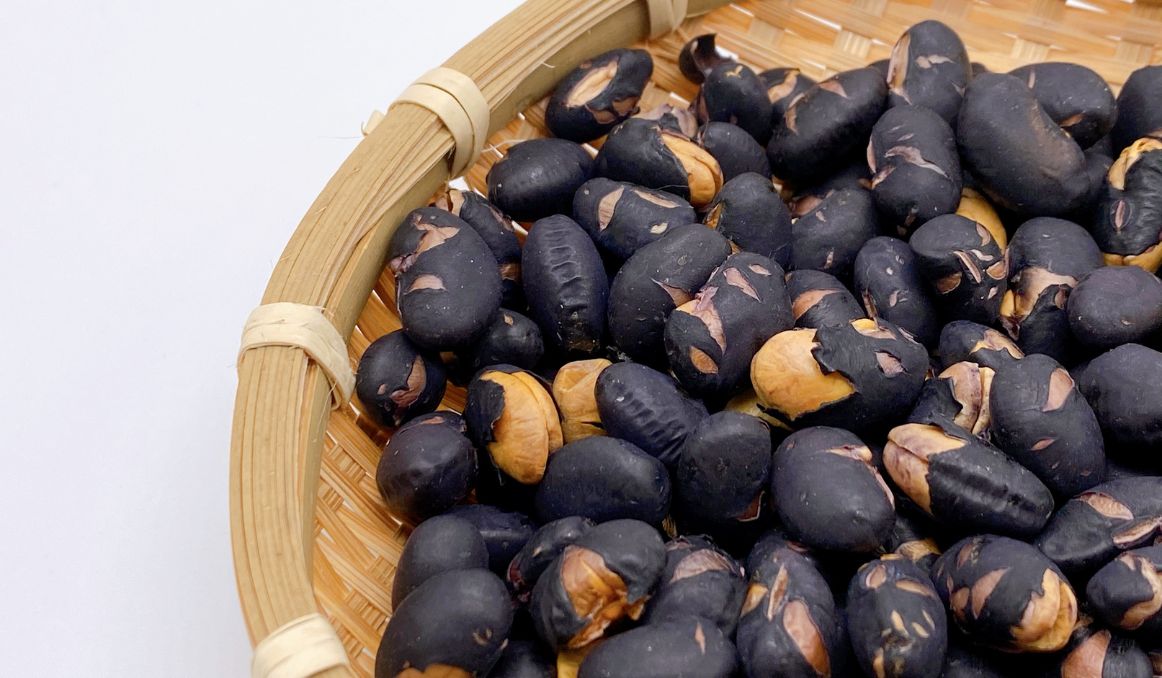Fermenting Black Beans: The Reasons and Benefits
All across the world, there are something called “blue zones,” according to author and researcher Dan Buettner. These are regions in the world where people tend to live to be at least 100 years old.
One of the factors they all have in common? Beans.
They eat a lot of beans and other legumes.
Beans on their own are already tremendously healthy, so what are the reasons and benefits for fermenting black beans and other legumes?

Benefits of Eating Beans
The great thing about beans is that you have many to choose from. If you don’t like pinto beans, you can opt for chickpeas, or garbanzo beans. Maybe kidney beans are more to your liking. And black beans seem to be a crowd pleaser across the board.
You cannot go wrong with beans.
The one drawback is that for some people, beans can be hard on the digestive system, causing gas and bloating.
But, for the most part, that side effect is unnecessary and can be avoided.
All you have to do is be sure to soak your beans overnight and dump the water. Then add fresh water and prepare your beans as you normally would.
You see, the gas is not caused by the beans themselves, but by a sugar in the beans that can be leached off by that overnight soaking process.
You can also add spices like ginger, turmeric, or fennel, which will further eliminate those sugars that cause gas.
Now you’re free and clear to eat beans without a care in your now much longer life!
It’s true. Studies have shown that with an increase of 20g in daily legumes intake, the risk of death fell by 6 percent. People who eat a cup of beans every day live much longer than their non-bean eating compatriots.
Why?
Beans are high in fiber, which keeps you feeling fuller longer and aid in natural digestion. This combination help you keep a trimmer waste and stave off obesity, which is better for your heart and your overall health.
Antioxidants are another reason beans are so good for you. Eating beans regularly will help your body fight off free radicals and cancer-causing chemicals in your body and in the environment.
They’re also rich in minerals like magnesium, iron, zinc, and potassium, all essential for your immune system function, energy levels, and blood circulation.
Beans are also high in protein, which are pretty much the building block of your entire body.
Protein helps you build and maintain bones, muscles, cartilage, and skin. Your hair and nails are almost purely protein. Your body uses protein to repair tissue damage, which you have every single day. It also oxygenates your red blood cells, which supply your body with the nutrients it needs. Finally, protein regulates your hormones, which regulate pretty much everything in your body.
So yes! You need lots of protein.
And getting a healthy portion of your protein from plant sources like beans can ensure you are getting all the other vitamins along with the protein.
Black Bean
As with most foods, the darker the better.
Black bean, not to be mistaken for black beans are among the best beans for you, and most cultures across Asia and Latin America will agree.
Black bean is a member of the soybean family, but it has more flavor. It is tasteful and oily, and originates in Latin America, where it is known as the black turtle bean.
Nutrients specific to black bean are calcium, selenium, and B vitamins, all of which are great for bones, energy, and even your moods! They are also rich in potassium and polyphenols, a compound found in darker skinned foods, which help lower blood sugar and stave off diabetes.
Higher in protein and lower in carbohydrates than other beans, black beans are the winners.
Now, why ferment them?
Fermented Black Beans

Some people don’t like the flavor of black soybeans, so they began fermenting them both for preservation value and because the process makes them saltier and more appealing.
This dish is also known as douchi, or salted black beans. They can last on the shelf for up to one year once they have been fermented.
Typically, fermented black beans are not a dish on their own, but rather a seasoning for other dishes, served in a side dish on the table with a meal. They can also be treated as a healthy snack for those in the mood for a salty fix.
They are usually rinsed and then rehydrated before being added to a dish, otherwise they will impart a strong, too salty flavor to the meal.
The health benefits of fermented black beans come from the fermentation process, which reduces its antinutrient properties, properties that block the absorption of vitamins and minerals, and increase its beneficial plant compounds, helping your body absorb the nutrients the beans contain.
Fermentation also provides probiotics to food, which lead to a healthy gut and good digestion.
How to Ferment Black Soybeans
To ferment your own black soybeans at home for a snack or an addition to your meals, simply soak your dry soybeans for 24 hours in warm water. At the end of the 24-hour period, drain all the liquid to get rid of those gassy sugars.
Next, cook them slowly in plenty of liquid and bring them to a boil on the stovetop. Simmer your beans for about an hour.
At this point, you can add in any spices you like for flavor. Think salt and pepper, cilantro, and cumin at the very least.
Finally, add a whey culture to your black beans and mash the culture into the beans, fully combining the ingredients. Put the beans in jars with lids and put the jars in a warm place in your home.
Wait for several days and the culture will ferment your beans and create a probiotic effect. Check on your beans once a day and open the lids to ensure you release the gas pressure that will build up during fermentation.
When they’re done, eat to your pleasure!
And if you have been flirting with the idea of starting a business around fermenting black soybeans, now you know the basics and why you’d be doing the world a favor.
Passionate about yeast fermentation and all the wonders it can do? So are we! If you’re interested in finding out how you can use our technology to control fermentation and monitor your yeast, save work hours and improve the cost-efficiency of your business, drop us a line at [email protected]
Also, check out these product pages, if you’re into beer or wine making:
- Oculyze BB 2.0 (Better Brewing) Yeast Cell Counter App + Hardware
- Oculyze FW (Fermentation Wine) Yeast Cell Counter App + Hardware
…or our custom solution page for other use cases (yours included):
Sources:
- https://www.medicalnewstoday.com/articles/320192
- https://www.realsimple.com/food-recipes/recipe-collections-favorites/popular-ingredients/benefits-of-beans
- https://www.bluezones.com/2016/06/10-things-about-beans/
- https://www.piedmont.org/living-better/why-is-protein-important-in-your-diet
- https://www.healthline.com/nutrition/are-black-beans-healthy


